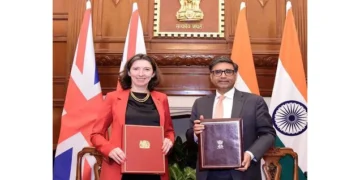Blitz Bureau
NEW DELHI: IN a move set to recalibrate its economic ties with a key partner, India is embarking on a mission to rewrite the rules of its trade relationship with the Association of Southeast Asian Nations (ASEAN). The country is set to demand a more equitable agreement, aiming to reverse a decadelong trend of a deepening trade deficit that has disproportionately favored the ASEAN bloc.
The upcoming round of negotiations, scheduled for October in Jakarta, is being hailed as a critical juncture. The India-ASEAN Trade in Goods Agreement (AITIGA), which came into force in 2010, was designed to boost trade through tariff reductions. However, for India, the pact has led to a lopsided outcome. The trade deficit has ballooned to a staggering $45.2 billion in FY23, fuelled by a surge in imports that has far outpaced India’s exports. In FY24, the imbalance was stark, with India’s exports to ASEAN at $32.7 billion against imports that soared to over $66 billion.
According to trade analysts and government sources, the core issue lies in the asymmetry of the original deal. India, in its eagerness to open up its markets, offered tariff concessions on a wider range of products, freeing up 71 per cent of its tariff lines. In stark contrast, some major ASEAN economies, such as Indonesia and Vietnam, offered considerably less access, leaving Indian exporters at a disadvantage.
“The current agreement has been a one-way street, and we are pushing for a fundamental course correction,” a source involved in the negotiations told a reporter. “This is not about rolling back on trade but about ensuring mutual benefit. We need a more level playing field that allows our goods to penetrate their markets just as their goods have entered ours.”
The review aims to address these structural imbalances by tightening the “rules of origin” to prevent the misuse of preferential tariffs. For India, a country with a vast manufacturing base and a robust services sector, a balanced agreement with the 10-nation ASEAN bloc, which holds a combined GDP of over $4.13 trillion, is not just an economic priority—it’s a strategic necessity.

























